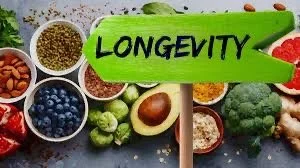Longevity and nutrition go hand in hand
Coach Ray Traitz presents yet another written article aimed at helping people achieve their fitness, performance, nutrition, and longevity goals.
If we consider this in the simplest terms, we can understand how critical nutrition is for living longer. Remember the old saying, “You are what you eat”? Well, it is 100% true. Research indicates that a diet rich in whole foods and low in processed foods is associated with a lower risk of chronic diseases and increased longevity (1).
In my experience working with people as a nutrition coach, I have never imposed strict restrictions on anyone. Instead, I’ve always told them, “If you want to look like (blank), then go right ahead.” Research suggests that adopting a flexible approach to dieting, rather than rigidly avoiding certain foods, can lead to better long-term adherence and overall health outcomes (2).
So, what can you eat to live longer? Consider this: consuming whole foods can significantly contribute to longevity. Studies have shown that diets high in fruits, vegetables, nuts, seeds, and lean meats are associated with a reduced risk of chronic diseases and mortality (3). Incorporating minimal starch and zero sugar into your diet can further enhance these benefits (4).
However, I’m not suggesting that you should refrain from enjoying life or making excuses about improving your nutritional habits. While it’s important to enjoy yourself and indulge occasionally, research suggests that maintaining a balance between healthy eating and occasional treats is key for long-term success (5).
Ultimately, the choice is yours, and it’s always up to you.
If you are interested in hiring coach Ray Traitz to help you on your nutrition and longevity journeys, I highly recommend that you schedule an assessment TODAY!
Contact: amrapfitness@hotmail.com
References:
1. Mozaffarian, D., & Ludwig, D. S. (2010). Dietary guidelines in the 21st century–a time for food. JAMA, 304(6), 681-682.
2. Linardon, J., & Mitchell, S. (2020). Rigid dietary control, flexible dietary control, and intuitive eating: Evidence for their differential relationship to disordered eating and body image concerns. Eating Behaviors, 37, 101382.
3. Aune, D., Giovannucci, E., Boffetta, P., Fadnes, L. T., Keum, N., Norat, T., … & Tonstad, S. (2017). Fruit and vegetable intake and the risk of cardiovascular disease, total cancer and all-cause mortality-a systematic review and dose-response meta-analysis of prospective studies. International Journal of Epidemiology, 46(3), 1029-1056.
4. DiNicolantonio, J. J., O’Keefe, J. H., & Wilson, W. (2019). Sugar addiction: is it real? A narrative review. British Journal of Sports Medicine, 53(22), 1395-1403.
5. Leahey, T. M., Doyle, C. Y., Xu, X., Bihuniak, J., Wing, R. R., & Dose, T. (2015). Daily self-weighing and weight gain prevention: a longitudinal study of college-aged women. Journal of Behavioral Medicine, 38(2), 262-272.

